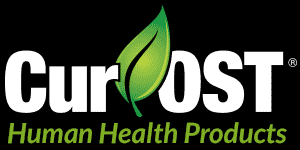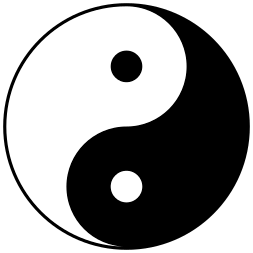Everyone struggles with various health situations from one day to the next on some level. There are so many variables that play into our health, that at times, it seems impossible to control. Yet, in truth, it isn’t that difficult. Challenging, yes, but not impossible. The concepts of Yin and Yang have been tossed around for centuries and in more recent times have become a bumper sticker or a passing fad of sorts. While it is human nature not to take the time to understand something, Yin and Yang play a vital role in both women’s and men’s health on a daily basis. When one understands, then better health is within reach.
The famous ‘Yin-Yang’ symbol, better known as the Tai-Chi symbol, is well recognized in many respects. It contains both a black and white section that both gradually taper down and blend with the next. Black blends with white and white blends with black as you move around the symbol. The black represents the Yin and the white the Yang. Both are present not just in our body, but in every food, every season, and every part of nature. For ideal health and well-being, there must be balance.
The Yin aspect, which is the black section of the Tai-Chi symbol, is the cooling and moisturizing property of our body. Yin is also the feminine aspect, corresponding more with the hormone estrogen. It is also the dark aspect of the day, meaning that as we move into the dusk hours and gradual darkness, the Yin component increases in our body and the world around us. Yin is quiet, calming and restoring.
The Yang aspect, which is the white section of the Tai-Chi symbol, is the warming and drying aspect of our body and the world around us. Yang represents the male property, relating more to testosterone, energy, and movement. Yang is the bright aspect of the day and steadily increases with the dawn hours, peaking around noon, and then steadily decreasing as Yin takes over.
Thus, as you can see within the Tai-Chi symbol, one blends into the other. Yang is prominent by day but gradually tapers and blends into Yin. Yin is prominent at night and gradually tapers into Yang as the morning hours rise and pass.
Both genders have Yin and Yang present within them, but women tend to lean more towards the Yin aspect, while men more towards the Yang aspect. Time and age both have influence upon the Yin and Yang in our bodies. When we are young, there is more Yang present, noted by increased energy, hormone surges, and movement. As we age, we enter more into the Yin years with fading Yang. We become colder in some cases, our skin wrinkles with subclinical dehydration, and we are not as active.
What does this have to do with your health? Whether if you are a woman or a man, both Yin and Yang have almost absolutely everything to do with your health. Thus, it is wise to gain some fundamental understanding of this concept, as even with a slight comprehension, you can turn poor health into vitality. Do you wish to just survive or do you want to thrive?
Women’s Health, Yin and Yang
Women are prone to Yin deficiency as they age, which can contribute significantly to poor health and many common ailments. Yin and Yang are present in our body, in the world around us, in our foods, and herbs. Due to our current lifestyles, we are on the move, which can deplete us on an energy level. We drink stimulating substances, consume stimulating foods, exercise heavily, and even mentally drain our being. These are all Yang inducing and with that, those actions and choices produce more heat (yang) within the body. This excess heat will dry up or drain the Yin component.
Common clinical problems associated with Yin deficiency include:
- Anxiety
- Menstrual problems
- Constipation
- Menopause
- Dry skin
- Hair loss
- Reduced libido
- Back and knee pain
- Mental concerns
- High blood pressure
To resolve, one must change their lifestyle, and choose foods and herbs which promote or support the Yin aspect of your health and well being.
Yin promoting herbs include:
- Shatavari (asparagus)
- Wild Yam
- Red Clover
- Black sesame seed
- Reishi or Ganoderma mushroom
- Rehmannia glutinosa
- Goji Berry
- Gynostemma
- many, many others
Men’s Health, Yin and Yang
Men do experience Yin deficiency as they age, very similar to women. In many cases, men tend to carry too much Yang and thus retain heat, drying up the Yin aspect. The over aggressive nature of men to drive to success, working long hours, and doing too much physical work is especially depleting.
On the other hand, some men do experience Yang deficiency.
Common clinical problems associated with Yang deficiency include:
- Impotence or erectile dysfunction
- Prostate concerns
- Low libido
- Low back pain
- Knee pain
- Loose stools or poor digestion
- General feeling of cold
- Reduce energy
Yang supporting or promoting herbs include:
- Ginger root
- Cinnamon
- Cordyceps sinensis
- Shilajit
- Tribulus terrestris
- Ashwagandha
These clinical problems associated with Yin and Yang deficiency can occur in either gender. Keep that in mind. The other aspect to remember is that health is about balance; mentally, spiritually, and physically. One cannot drive for success, going 24 hours per day, consuming gallons of stimulating substances with a poor diet and expect an herb to change their life. It just isn’t possible. In order to achieve better health, one must obtain balance.
Where there is movement, there must be rest. Yin and Yang in harmony.
To learn more, check out our book “Why Aren’t You Healed“, which details these concepts and more for a better understanding on how to apply them in your life.
Author: Tom Schell, D.V.M, CVCH, CHN


